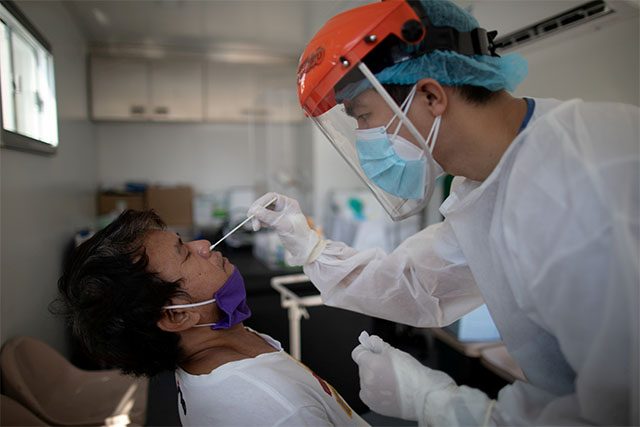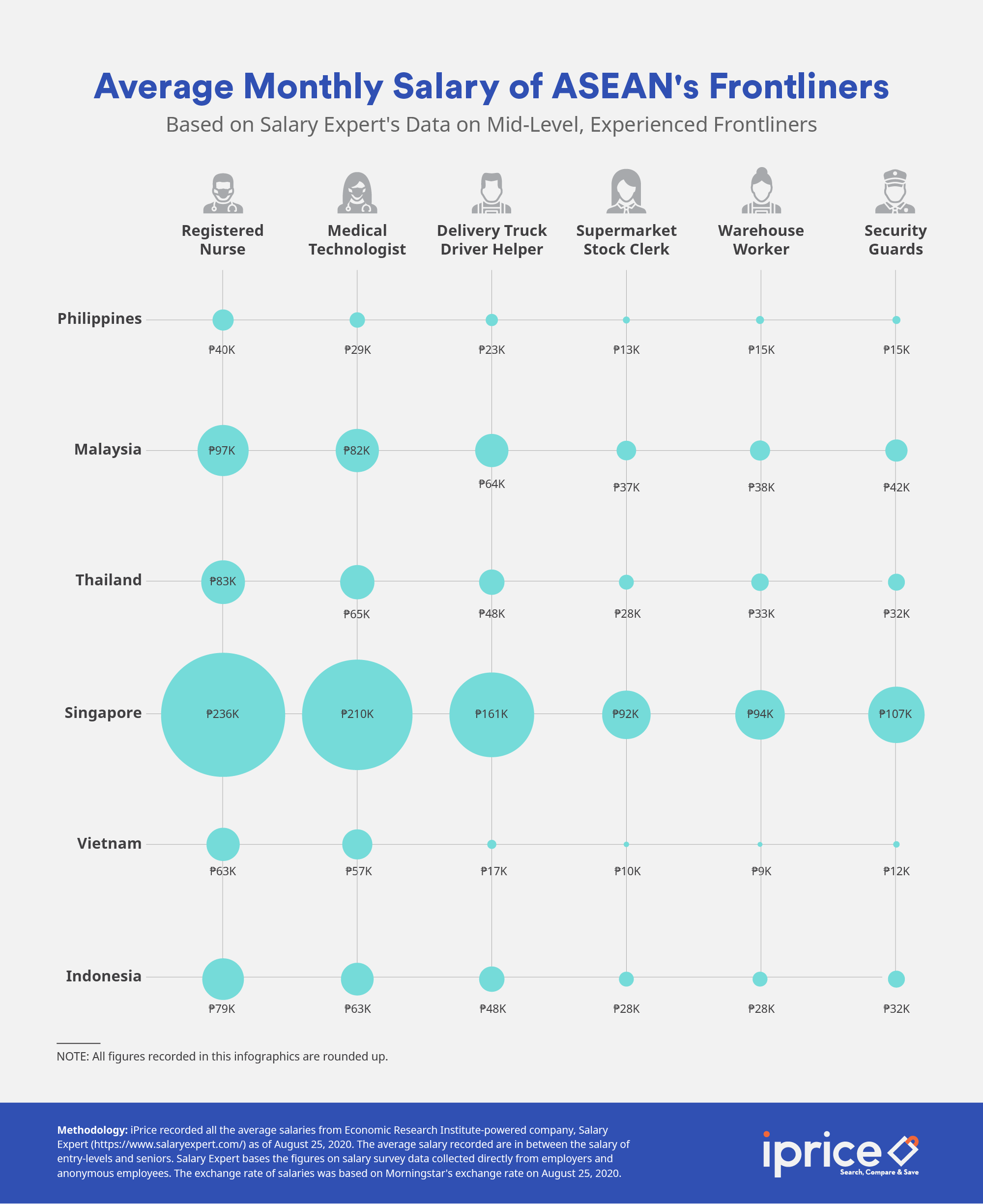
Filipino registered nurses were revealed to earn the least compared to their peers in the Southeast Asia region, based on a recent study conducted by an information aggregator.
The average monthly salary of a mid-level nurse in the Philippines was compared by iPrice Group to those in Malaysia, Thailand, Singapore, Vietnam, and Indonesia.
The group said that experienced Filipino nurses only earn around P40,381 per month while their ASEAN counterparts earn at least P63,000.
Data from Economic Research Institute-powered company, Salary Expert, showed that nurses in different parts of Southeast Asia earn the following figures per month, which was rounded up:
- P63,200: Vietnam
- P79,000: Indonesia
- P83,000: Thailand
- P97,000: Malaysia
- P236,000: Singapore
The group said that a Filipino nurse’s salary is “57% less than the next lowest paid” registered nurse in Vietnam.
Singaporean nurses, on the other hand, earn “486% more” than their Filipino counterparts with an average monthly salary of P274,800.
It also found out that the wage gap between Filipino healthcare workers and its ASEAN neighbors which have similar costs of living such as Indonesia and Thailand was “wide” as well.
Thailand and Indonesian registered nurses earn “104% and 95% more than” Filipino nurses respectively, while medical technologists in Malaysia earn “178% more” than their Filipino counterparts.
Mid-level Filipino medical technologists earn P29,444 per month, according to the group.
It is also considered lower than other ASEAN countries which rank from P57,000 to P210,000.

The group concluded that Filipino medical frontliners “may struggle to make ends meet while risking their lives” as it cited that as of 2018, the average household expenditure of Filipinos is about P19,917 per month.
The study was released shortly after the country commemorated the National Heroes’ Day in honor of the Filipinos who fought for independence from Spain.
This year, healthcare workers, who are the primary frontliners against today’s coronavirus pandemic, were revered as the country’s “modern-day heroes” in recognition of their tireless efforts in providing services despite the constant threat of the virus.
Meanwhile, they are still banned from leaving the country to work abroad in hopes of better pay while the Philippines’ state of public health emergency is still in place due to the pandemic.
Filipino healthcare workers likewise cannot work abroad unless the pandemic-related travel restrictions in their destination countries are loosened as well.
The government earlier banned them from leaving the country in order to preserve human resources as the country grapples with the respiratory disease.
However, it later on allowed those with secured overseas employment contracts and travel documents before March 8 to travel.
Healthcare workers’ organizations have reportedly appealed to lift the ban with the claim that there are no more jobs left for them in the country.
Filipino Nurses United reasoned that working abroad enables them to uplift the economic situation of their families but Malacañang has appealed for their patriotism and urged them to serve their fellow Filipinos.
Presidential spokesperson Harry Roque said that nurses’ salaries have increased in government hospitals and benefits such as hazard allowances and free testing are provided for them amid the ongoing pandemic.
He also said that the lifting of the ban is not happening soon.
Filipino nurses have been cited to work abroad due to low wages and poor working conditions in the country, reports note.









